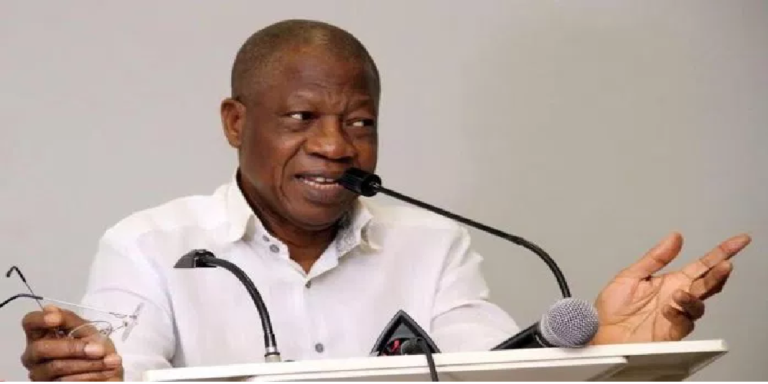
Paradigm Initiative, a pan-African social enterprise working to advance digital rights and inclusion in Africa, joins voices with innovators and internet broadcast content creators in Nigeria to strongly condemn the recently amended National Broadcasting Commission (NBC) Code released to “make provision for local content, increased advertising revenue, and restriction of monopolistic behaviour in the broadcast industry.”
The digital right group thus joined voices with stakeholders and members of the civil rights groups to condemn what has been described by many as an anti-capitalism move by the federal government of Nigeria.
In a statement issued during the week, Paradigm described NBC’s policies as unfavorable, unfair, burdensome and capable of stymieing the growth of the young internet market in Nigeria.
Register for Tekedia Mini-MBA edition 19 (Feb 9 – May 2, 2026): big discounts for early bird.
Tekedia AI in Business Masterclass opens registrations.
Join Tekedia Capital Syndicate and co-invest in great global startups.
Register for Tekedia AI Lab: From Technical Design to Deployment (next edition begins Jan 24 2026).
“The Commission has by this Amendment, laid down unfavorable conditions and requirements for the just budding PayTV Industry in Nigeria; placing unfair and unrealistic burdens on local content producers and by extension, the economy.
“While we’re yet to get an official definition from the Commission for ‘Web/Online Broadcasting’, it is clear from the new provisions that certain clauses will affect the development of the sector. The compulsion to prevent exclusive rights to content on PayTV platforms is archaic and regressive, to say the least. Apart from it being a blatant affront to the freedom of copyright holders to use and license their work as they wish, it also chokes innovation in the streaming television business.
“Furthermore, the NBC mandates that all persons wishing to operate web/online broadcasting services in Nigeria must register with the Commission. However, there is no public record of the Commission’s consultation with these stakeholders in making these amendments.
“The internet space in Nigeria is developing and innovation is to be encouraged. However, policies like this can greatly discourage the development of technology and technology-based services thereby creating an unfavorable environment for the kind economic growth that is relevant in this age.
“Especially with the new realities faced by Nigeria as a result of the COVID-19 Pandemic, government policies should not only desist from hampering nascent technologies but must in fact, encourage and incentivize same. The amendments to the NBC Code do not incentivize innovation in the broadcast and television industry and therefore, we join voices with other stakeholders to call upon the NBC to re-engage its process of amendment by opening dialogue between itself and the key stakeholders who would be affected by these policy directions.
“Furthermore, we call on the NBC to seek policies that will incentivize and not punish local content creation and technology service delivery in the broadcast industry.”
The Ministry of Information and Culture had in January, directed the regulator to enforce the new directive prohibiting exclusivity of sporting rights in Nigeria. The new directive mandates media houses, broadcasters and all those who have exclusive licenses to sports contents to share such rights with others.
The Ministry of Information said the decision is in order to boost reach and also maximize utilization by all broadcasters of premium content. The statement signed by the Hon. Minister of Information, Alhaji, Lai Mohammed said the new rule will compel broadcasters to utilize the content and services of Nigerian independent producers.
Lai Mohammed said the new rule is in line with already existing regulatory requirement that is designed to accommodate 70% local content, but is being exploited due to the loopholes in the exclusive rights of broadcasters.
Adding their voice, other stakeholders in the industry have condemned the move, saying it will kill the entertainment industry. Jason Njoku, founder and CEO of IrokoTV said it is “champagne socialism” that will destroy pay TV in Nigeria.
“Nigerian Broadcasting Commission (NBC), in making exclusivity illegal, compelling sub-licensing of content & regulating price, are effectively turning private enterprise into state property. Interface Distorts Markets. If implemented, this 100% destroys payTV in Nigeria,” he wrote.
He added that it is regrettable that Nigerian policymakers would compel people who invested billions in broadcast licenses to share with everyone else, just because the NBC sets the price.
The government’s move to halt exclusive broadcast right is seen as an attempt to nationalize private corporations in Nigeria, and it sets a trajectory that will scare potential investors away. At a time when the government said it is working to diversify the economy, its policies are becoming more hostile to businesses and investors.
Concerned individuals, stakeholders and civil rights organizations are urging the Nigerian government to reconsider its decision as it would cause harm not only to the broadcast industry, but the Nigerian economy as a whole.



